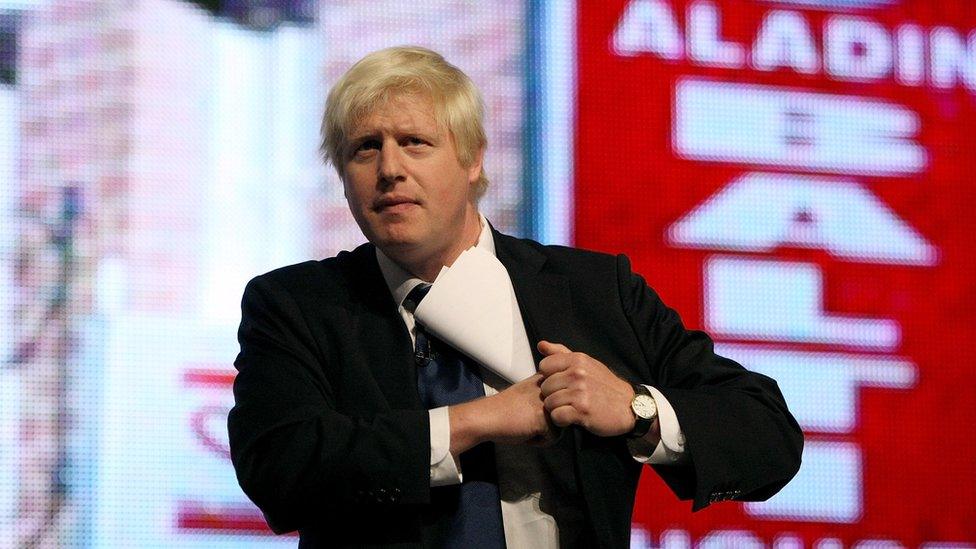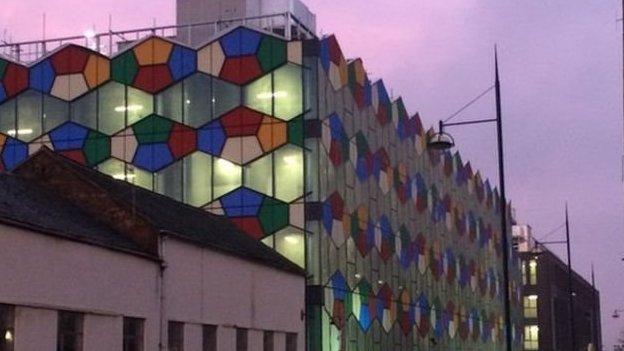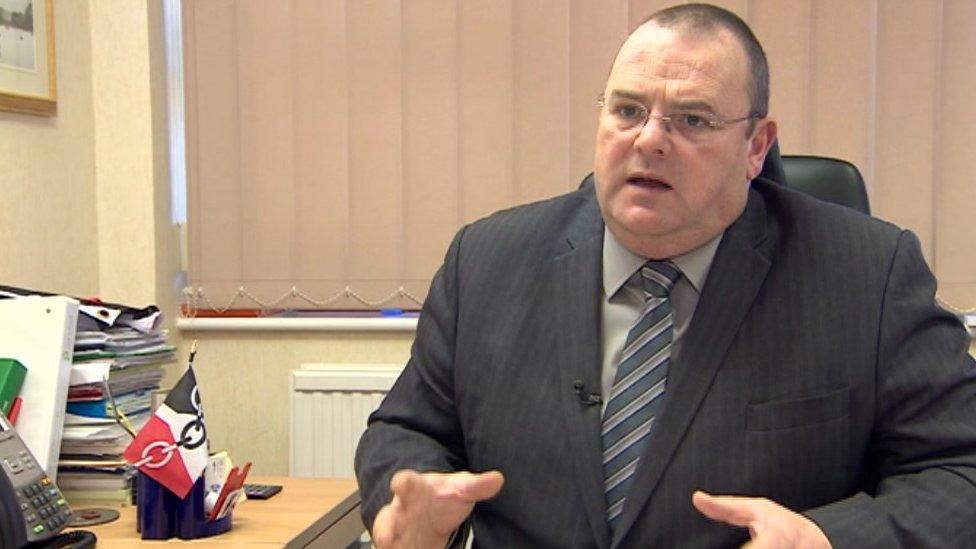It's a capital idea, but do we Midlanders want a mayor?
- Published
So many questions, just one answer

There appears to be little enthusiasm for the Midlands version of London Mayor Boris Johnson
Are we about to leave the European Union?
If we do, would Scotland demand another referendum
What would an independent Scotland mean for us who remain in the no longer United Kingdom?
In a political arena so full of unfathomable questions and even some unknown unknowns, it makes a change to be able to talk about one constitutional innovation which looks like a racing certainty. Barring some sort of bolt from the blue, in a little over a year from now, voters in a conurbation of more than three million people, from Wolverhampton to Coventry and from Sutton Coldfield to Solihull, will be preparing to elect their first 'metro mayor'. He or she will head-up the new West Midlands Combined Authority, one of the cornerstones of the government's much-hyped "devolution revolution": (yes, I know it doesn't rhyme but at least it looks good here in print.)
Time and again in my previous posts I have rehearsed the explanations of how little enthusiasm there is for the idea of our own local version of Boris Johnson:
No, no, no, no!

In Stoke-on-Trent, the elected mayor project was scrapped after an overwhelming referendum result
How Stoke-on-Trent had an elected mayor for seven intensely controversial years, only to scrap the entire project after an overwhelming referendum result. The proposal has also been overwhelmingly rejected in Coventry and twice in Birmingham.
Whenever we air the subject here on our television and radio programmes, or like this online, back comes the general response from our viewers, listeners and readers indicating the public mood of hostility and antipathy has changed not one jot.
Another unwanted jam layer of politicians and bureaucrats is how many people appear to see it and most of them tell us they want nothing whatsoever to do with it.
A top-down approach to localism?

The chancellor says elected mayors will be the "focal point for accountability" over big-ticket items such as housing and transport
It may seem strangely ironic that in the name of the government's localism agenda, ministers are insisting on this radical departure in local political leadership being imposed, say critics, from the top down.
But David Cameron and George Osborne make absolutely no apology for couching this in terms of extra clout for local communities. They see it as a step change in local decision-making, so the top level of devolution, 'devo max', comprising £1bn of devolved political and spending powers for 30 years, has to come with that metro mayor attached as part of the bargain. Only then, say the prime minister and chancellor, can there be what George Osborne calls "the focal point for accountability" presiding over such big-ticket items as housing, transport, skills and, quite possibly, the police and fire services too.
Likely candidates

The death of Sandwell Council leader Darren Cooper, former vice chairman of the shadow combined authority, deprives Labour of one potential candidate
Since last I listed the possible contenders there have been signs of a narrowing of the field.
The tragic, untimely death of Sandwell's Labour leader Darren Cooper, vice chairman of the shadow combined authority, deprives his party of one potential candidate. But my understanding is that even before that shocking news on Easter Sunday, Labour were already looking elsewhere. I expect their final choice in July will be between the former Treasury chief secretary, currently Labour MP for Birmingham Hodge Hill, Liam Byrne, and the former Erdington MP and minister for creative industries Sion Simon, currently one of two West Midlands Labour MEPs.
While attention inevitably focuses on Labour in one of their traditional heartlands, the Conservatives will feel they are not entirely without hope, given what they consider the vagaries of the political scene as a whole. One name often quoted as a possible independent candidate is Andy Street, chairman of the Greater Birmingham and Solihull Local Enterprise Partnership and managing director of John Lewis. Whether or not he would consider running as the official Conservative candidate is one of the more intriguing 'unknowns' I mentioned earlier.
It is always difficult for an independent candidate to take on the might of the main party machines, but Lord Digby Jones of Birmingham is bound to feature yet again in the speculation, even though he has always eschewed the very idea of standing under the banner of any of the established parties.
As for UKIP, they have steadfastly opposed the very idea of elected mayors. When I recently teased the Dudley councillor, regional MEP and would-be MP Bill Etheridge about his track record of "standing for everything", he categorically ruled himself out of the race for mayor.
As for the Liberal Democrats, two former MPs, John Hemming (Birmingham Yardley) or Lorely (now Baroness) Burt (Solihull), may fancy their chances.
And what about the Greens? Or the ex-MP, ex-councillor, now Trade Unionist and Socialist Coalition leader, Dave Nellist?
But by now I am sure you have noticed I am reverting to question marks again when I set out in search of certainty.
So let's leave it to this weekend's Sunday Politics Midlands to uncover what answers there may be.
We are in our usual 11.00 slot on BBC One this Sunday, 10 April 2016.